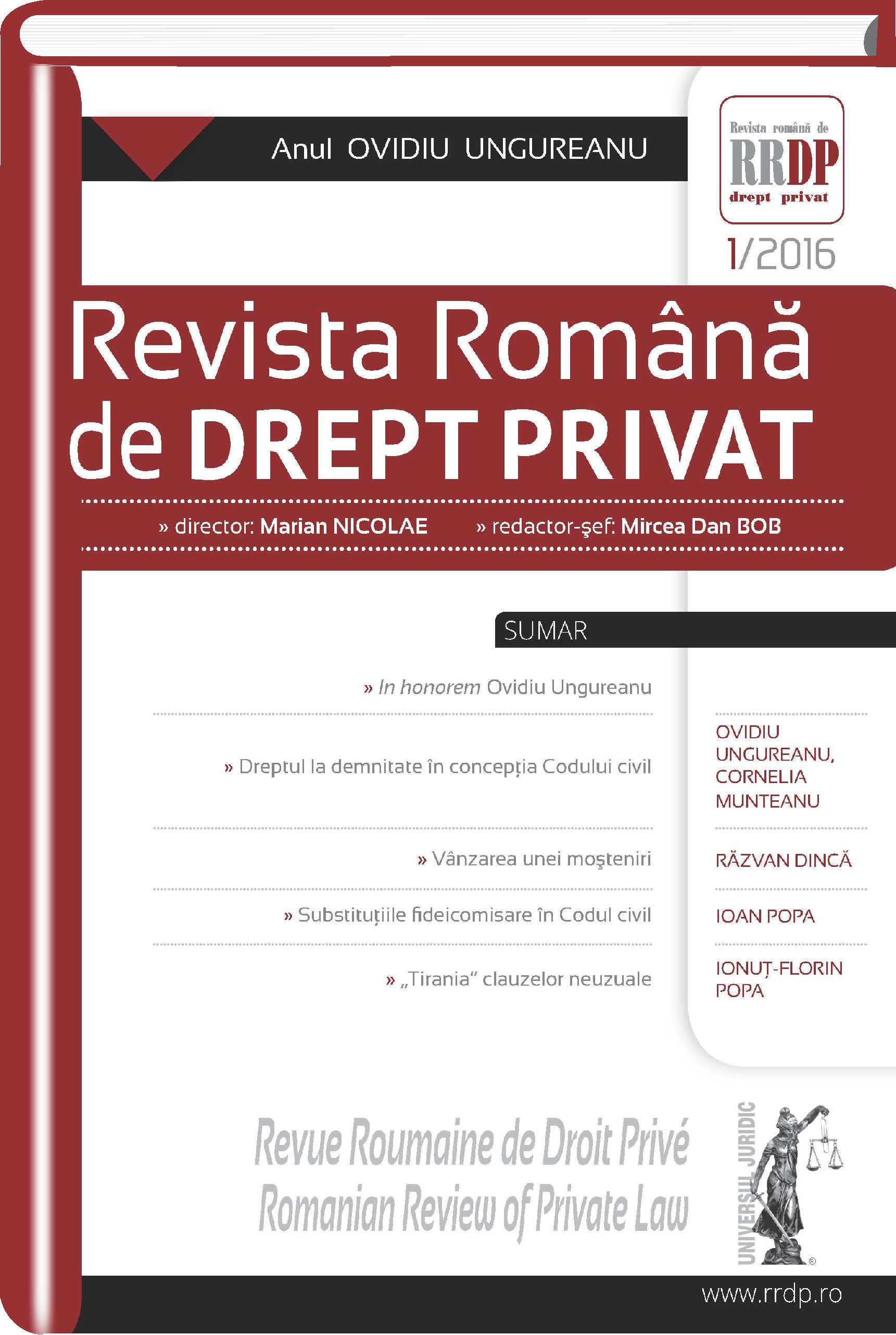Substituţiile fideicomisare în Codul civil
Fiduciary substitutions in the Civil Code
Author(s): Ioan PopaSubject(s): Law, Constitution, Jurisprudence, Civil Law
Published by: Universul Juridic
Keywords: substitution; condition; termination; legacies; donation;
Summary/Abstract: The study intended for the fiduciary substitutions proposes an extremely brief examination of a legal institution whose age is lost somewhere in the Roman antiquity and which, in order to reach us, it had to get through tough times, in which the ebullient periods alternated with the restrictions and even interdictions periods. During those periods, the law maker of those times or the doctrinaires concerned with enhancing the value of this legal mechanism did not have any clear view about the actions which had to be taken for attaining a certain purpose: a transgenerational transfer of assets, an acceptable protection of certain persons with various disabilities, who, in the early days, were members of the same family, the need that certain assets should remain in the family property, objectives which have been changed over time. The intended purposes should be without prejudice to certain principles of law formed over time, such as the establishment of a succession order according to law, the full freedom to bequeath by will, the interdiction of any pacts on a future succession, the provision of certain flexible powers to the holders of certain conditional rights, the third parties’ warning about the soluble nature of a certain type of ownership etc. The solutions adopted at a given time have not been able to explain, for instance, for which reason the substitution is characterized by two transfers, but however, both transfers are made from the same estate, as a result of the same will.After we had verified the nature of this institution, first from the main source, namely in the French Civil Code, which the Romanian lawmaker draw from as well, we found that it was no better in the French doctrine and legislation, and that certain famous authors of the French doctrine had contradictory opinions in the matter, and that their opinions have not helped us much in our endeavour. Instead, we found certain fundamental ideas in the Romanian doctrine (Dan Chirică), however, they were insufficient to create a congruent theory on this institution, which shall remain controversial even despite our endeavour to this end. Everything that we set out was only to bring a little light in a matter, which was actually unusable, since, even if we knew the final purpose, we were not aware of the way forward in order to attain it.At present, we know at least the concrete way which, using the theory of the resolutive or suspension condition with discernment, both of them being grafted on a donation or on a will, could determine us to attain the intended purpose.
Journal: Revista Română de Drept Privat
- Issue Year: 2016
- Issue No: 01
- Page Range: 113-134
- Page Count: 22
- Language: Romanian
- Content File-PDF

